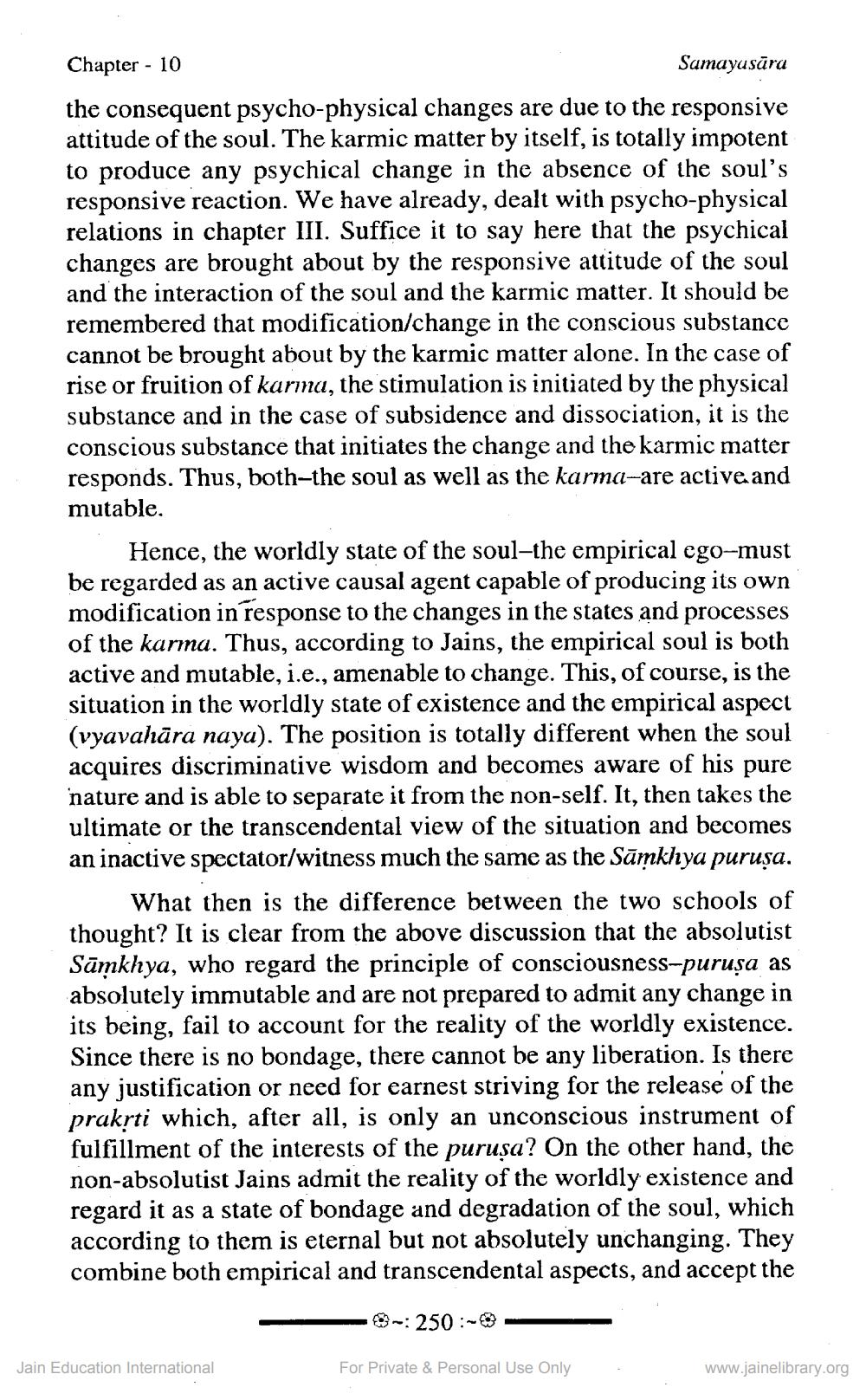________________
Chapter - 10
Samayaṣāra
the consequent psycho-physical changes are due to the responsive attitude of the soul. The karmic matter by itself, is totally impotent to produce any psychical change in the absence of the soul's responsive reaction. We have already, dealt with psycho-physical relations in chapter III. Suffice it to say here that the psychical changes are brought about by the responsive attitude of the soul and the interaction of the soul and the karmic matter. It should be remembered that modification/change in the conscious substance cannot be brought about by the karmic matter alone. In the case of rise or fruition of karma, the stimulation is initiated by the physical substance and in the case of subsidence and dissociation, it is the conscious substance that initiates the change and the karmic matter responds. Thus, both-the soul as well as the karma-are active.and mutable.
Hence, the worldly state of the soul-the empirical ego-must be regarded as an active causal agent capable of producing its own modification in response to the changes in the states and processes of the karma. Thus, according to Jains, the empirical soul is both active and mutable, i.e., amenable to change. This, of course, is the situation in the worldly state of existence and the empirical aspect (vyavahāra naya). The position is totally different when the soul acquires discriminative wisdom and becomes aware of his pure nature and is able to separate it from the non-self. It, then takes the ultimate or the transcendental view of the situation and becomes an inactive spectator/witness much the same as the Sāmkhya puruṣa.
What then is the difference between the two schools of thought? It is clear from the above discussion that the absolutist Sāmkhya, who regard the principle of consciousness-purusa as absolutely immutable and are not prepared to admit any change in its being, fail to account for the reality of the worldly existence. Since there is no bondage, there cannot be any liberation. Is there any justification or need for earnest striving for the release of the prakṛti which, after all, is only an unconscious instrument of fulfillment of the interests of the purusa? On the other hand, the non-absolutist Jains admit the reality of the worldly existence and regard it as a state of bondage and degradation of the soul, which according to them is eternal but not absolutely unchanging. They combine both empirical and transcendental aspects, and accept the
Jain Education International
~:250:
For Private & Personal Use Only
www.jainelibrary.org




